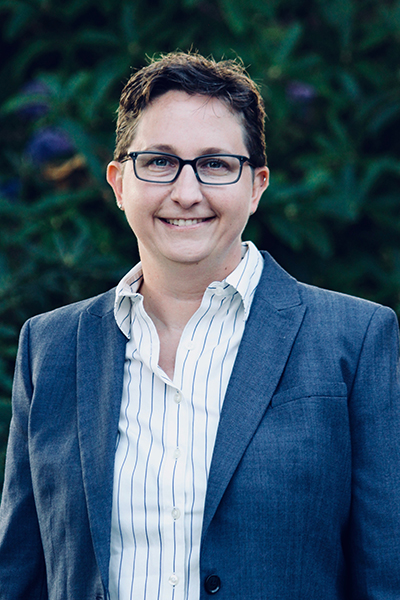by Matthew Smith
A paper published this week in the Journal of the American Medical Association Network Open examines the interactions families have with child protection services (CPS) after children test positive for illicit drugs during medical encounters.
Rebecca Rebbe, assistant professor at the University of North Carolina at Chapel Hill School of Social Work, led a research study that found fewer than half of the encounters involving children with positive drug screens resulted in reports to CPS, with out-of-home placements being uncommon.

“This study provides important information about how kids are reported to CPS,” Rebbe said. “This is information that we generally do not have because we usually only have data from one system. That means we generally cannot compare kids who are reported with the kids who are not reported because we cannot track them across systems.”
The study examined 511 emergency department and inpatient medical encounters involving children with positive drug tests in the Rady Children’s Hospital in San Diego from 2016-21.
Drug screens are often performed at the hospital as a standard of care and the data set included children from less than 1-year-old to 12 years old to consider accidental ingestions versus intentional use. Illicit drugs tested in the screen included amphetamines, cannabis, cocaine, fentanyl, opiates, benzodiazepines, barbiturates, and phencyclidine (PCP).
Data showed that following a positive drug screen, 47% of incidents were reported to CPS, with 61 children being placed in out-of-home care within 30 days. That’s fewer than 12% over the five-year period.
“We were not able to identify in our data why some children with positive drug screens were reported to CPS and others were not,” Rebbe said. “But we were able to identify that children who were younger were more likely to be reported than children who were older. And we found differences in the likelihood of a CPS report or case being opened by the drug the child tested positive for.”
Age, drug type, history are factors
Of the more than 500 medical encounters noted in the study, almost two-thirds of the children were 6 years old or younger.
Rebbe said that findings showed a need for better parental education.
“It was striking that about two-thirds of the children were 6 years old or younger, and for cannabis, more than half of children were between the ages of 1 and 6,” she said. “This highlighted, for us, the importance of public health campaigns regarding the safe storage of drugs and paraphernalia.”
The type of drugs children tested positive for also played a role in the escalation of a CPS report or case.
While cannabis detection had an increased risk of a CPS report being filed, “harder” drugs like fentanyl saw the highest rates of CPS interactions with 64% of children being placed out-of-home within a 30-day period following a substantiated allegation.
The study said that “Findings continue to suggest that both reporting parties and CPS workers take the type of substance into account when assessing the need for CPS intervention.” This may be influenced by local policies, procedures and laws.
“It was striking that about two-thirds of the children were 6 years old or younger, and for cannabis, more than half of children were between the ages of 1 and 6,” she said. “This highlighted, for us, the importance of public health campaigns regarding the safe storage of drugs and paraphernalia.”
— Rebecca Rebbe, UNC School of Social Work Assistant Professor
“At the aggregate, our findings do suggest that different types of drugs are perceived to pose different levels of risk to children,” Rebbe said.
Another factor that played a role in whether or not a CPS report was opened rested on whether families had prior interactions with CPS.
“About 44% of the children testing positive for drugs had a CPS report prior to the medical encounter,” Rebbe said. “A prior CPS report was the second strongest predictor of a CPS case being opened. This means that these families are coming to the attention of agencies prior to the drug ingestion, suggesting that there were opportunities to provide services. This is important when we think about prevention.”
Population trends, future use
While the study did find a trend in younger children being more often reported to CPS, data did not show major differences between other subgroups.
“Younger children were more likely than older children to be reported to CPS and have a CPS case opened,” Rebbe said. “Kids whose medical encounters were paid for using public health insurance were more likely to have a CPS case opened, but not a CPS report. We did not find any differences in our full models by child sex or child race/ethnicity.”
Rebbe said she hopes to continue work from the study by examining how children move between medical systems and CPS, including their CPS trajectories.
“This information can be used to better understand mandated reporting policies and practices,” she said.
Rebbe was joined by UNC School of Social Work John A. Tate Distinguished Professor for Children in Need Emily Putnam-Hornstein and researchers from the University of California San Diego on the study.
The project was funded by the Eunice Kennedy Shriver National Institute of Child Health and Human Development through a R21 exploratory/developmental research grant award.
Read more about the study at JAMA Network Online.
Related stories

Four UNC School of Social Work professors receive prestigious honors at 28th annual SSWR Conference
Four School of Social Work professors were honored for their excellence in the field of social work during the 2024 SSWR Conference in Washington, D.C.

CDC award expands child violence researcher’s work
The K01 Grant will enable assistant professor Rebecca Rebbe to expand her research to include multiple forms of violence against children and to learn a new research method.

